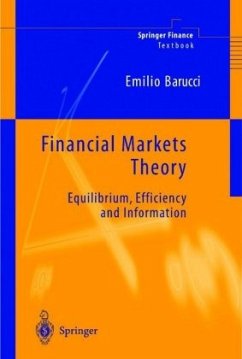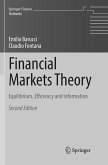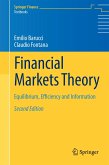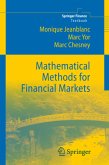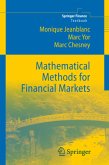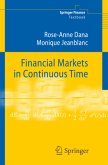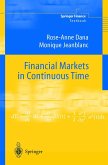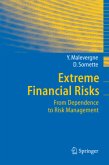Financial Markets Theory presents classical asset pricing theory, a theory composed of milestones such as portfolio selection, risk aversion, fundamental asset pricing theorem, portfolio frontier, CAPM, CCAPM, APT, the Modigliani-Miller Theorem, no arbitrage/risk neutral evaluation and information in financial markets. Starting from an analysis of the empirical tests of the above theories, the author provides a discussion of the most recent literature, pointing out the main advancements within classical asset pricing theory and the new approaches designed to address open problems (e.g. behavioural finance). It is the only textbook to address the economic foundations of financial markets theory from a mathematically rigorous standpoint, and to offer a self-contained critical discussion, based on empirical results. Financial Markets Theory is an advanced book, well-suited for a first graduate course in financial markets, economics or financial mathematics. It is self-contained and introduces topics in a setting accessible to economists and practitioners equipped with a basic mathematical background. For those not acquainted with standard microeconomic theory, the tools needed to follow the analysis are presented early in the book. The approach makes this a vital handbook for practitioners in insurance, banking, investment funds and financial consultancy, as well as an excellent graduate-reference textbook.
"The book concerns the most important and discussed issues of the modern financial markets theory. It provides a detailed and comprehensive review of theories, models, puzzles and open problems discussed in the literature concerning quantitative finance. ... the book presents also a broad survey of empirical literature, including the most recent findings. The list of references contains more than one and half thousand positions." (Pawel Kliber, zbMATH 1390.91001, 2018)

